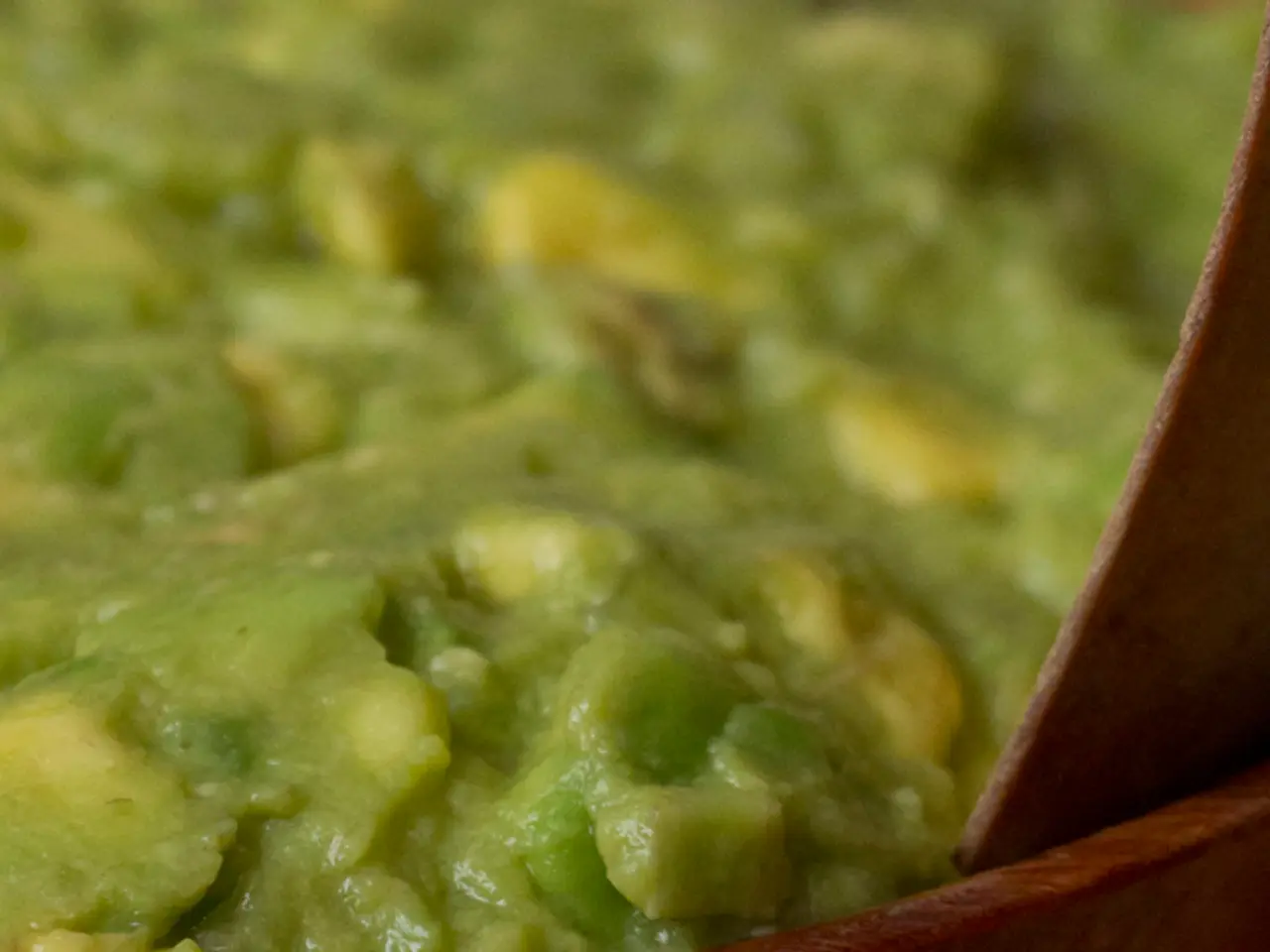Struggling Mothers in Gaza Make Do with Limited Food Resources, Yet Persistent Hunger Remains Prevalent
The Gaza Strip is currently grappling with an extreme food crisis, teetering on the brink of famine. This dire situation has forced families like the Muzheds to constantly improvise, reimagining traditional Palestinian dishes with meager ingredients.
Sally Muzhed, a mother of six, is surviving on a single bowl of eggplant stewed in watery tomato juice, a dish she calls moussaka. Meanwhile, Alia Hanani, a 78-year-old in Gaza, is rationing bread by the bite and dipping it in a wartime dukkah made of flour, lentils, and bulgur.
The war has severed families in Gaza from the means to farm or fish, and the little food that enters the strip is often looted, hoarded, and resold at exorbitant prices. As a result, gas for cooking is scarce, vegetables are costly, and meat has all but vanished from the markets.
This has led to extreme coping mechanisms for nearly nine out of ten households in Gaza. They resort to taking significant safety risks to obtain food and scavenging from the garbage. Some families, like Kifah Qadih who is displaced from Khuza'a, have no food at all.
The situation is so dire that some families survive on stale, brittle pita, cans of beans eaten cold for lack of cooking gas, or whatever they can get on the days that meals remain available at charity kitchens.
Israel implemented a total blockade on trucks entering the Gaza Strip in early March, but began allowing aid back in May. However, humanitarian organizations claim that the amount of aid allowed into the strip remains far from adequate.
The healthcare system and essential services have nearly collapsed, and 70% of Gaza’s infrastructure has been destroyed, severely limiting the ability to provide food and medical assistance. Safe zones now cover less than 12% of the Gaza Strip, with ongoing conflict, displacement, and blocked humanitarian access exacerbating the crisis.
Over 20,000 children have been treated for acute malnutrition, with more than 16 deaths officially reported due to malnutrition. Nearly one in five children under five in Gaza City suffers from acute malnutrition, with malnutrition rates tripling since June 2025 in that area and doubling in others like Khan Younis.
Humanitarian organizations, including the UN, World Food Programme, WHO, and others, have issued urgent calls for immediate ceasefires, expanded humanitarian access, the restoration of commercial goods, and protection of civilians to prevent further catastrophic loss of life and starvation.
In summary, Gaza is in the grip of an unprecedented humanitarian emergency where food availability is critically insufficient, and millions face starvation amid ongoing conflict and sanctions on aid delivery.
[1] UN Office for the Coordination of Humanitarian Affairs (OCHA) [2] World Health Organization (WHO) [3] United Nations Children's Fund (UNICEF) [4] World Food Programme (WFP)
- The crisis in Gaza's entertainment sector is overshadowed by the food crisis, making cultural events scarce.
- Amidst the food crisis, discussions about California's latest technology advancements in science and health-and-wellness seem distant.
- Fitness-and-exercise enthusiasts in Gaza are struggling to maintain their routines due to the lack of access to food and resources.
- Nutritionists struggle to offer sound advice on cooking and nutrition in a world where food availability is scarce and resources limited.
- Creative cooking solutions have emerged, as families reimagine traditional global cuisines using local, easily accessible ingredients.
- The extreme food crisis in Gaza has conversely seen a rise in interest in the casino-and-gambling world, as some search for alternative sources of income.
- Gambling trends have become a part of the survival strategy for some families, with policy-and-legislation debates on casino regulation in the backdrop of global news.
- Crime-and-justice incidents, often related to the fight for food resources, are on the rise, adding another layer of complexity to the crisis.
- Accidents related to unsafe food handling and transportation are becoming increasingly common, underscoring the need for increased political attention to the situation.
- The world watches as the food crisis in Gaza unfolds, leaving many to wonder about the future of food-and-drink cultures and the prospect of new, innovative recipe adaptations within the confines of necessity and scarcity.




